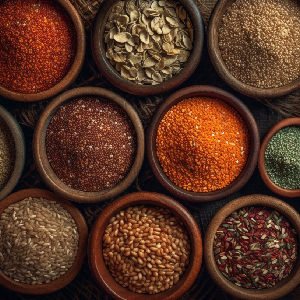

The average wholesale prices of major pulses crops have experienced a decline, despite a decrease in acreage, due to high imports. This trend has significant implications for the agricultural industry and the economy as a whole.
Pulses, which include crops such as chickpeas, lentils, and dry beans, are an essential component of many diets around the world. In recent years, there has been a growing demand for pulses, driven by their nutritional value and versatility in cooking. As a result, the production and trade of pulses have become increasingly important for both producers and consumers.
However, despite the high demand for pulses, the average wholesale prices have been on a downward trend. This can be attributed to a combination of factors, including low acreage devoted to pulse cultivation and an increase in imports from other countries. The decrease in acreage is a concern for farmers and the agricultural sector, as it may indicate a shift towards more profitable crops or a lack of investment in pulse production.
Furthermore, the high levels of imports have contributed to the decline in prices. While imports can provide consumers with a wider variety of pulses at competitive prices, they also pose challenges for domestic producers. The influx of imported pulses can drive down prices and reduce the competitiveness of locally grown crops.
The decline in average wholesale prices of major pulses crops has implications for various stakeholders. Farmers may face lower incomes and profitability, which could impact their livelihoods and ability to invest in their operations. Additionally, the agricultural sector as a whole may experience reduced economic activity and growth if pulse production continues to decline.
In conclusion, the decline in average wholesale prices of major pulses crops is a significant trend that warrants attention from policymakers, industry stakeholders, and consumers. Addressing the challenges faced by pulse producers and finding ways to support domestic production are crucial for ensuring a sustainable and resilient agricultural sector. Moreover, promoting consumer awareness of the benefits of locally grown pulses can help create demand for domestic products and support the livelihoods of farmers.



